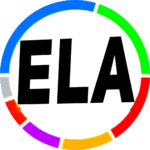4 Useful Things to Have When Attending College Fairs: A Checklist for Students
For some students, university and college fairs serve as their stepping stones to their dream schools. After all, not everyone can get a chance to be part of student recruitment for Ivy League universities and other renowned learning institutions.
As such, these events are not something you can take lightly. They are essential to students’ journeys not only in choosing the right school but also in succeeding in their applications.
If you plan to attend a college expo soon, you must come prepared and ready to impress.
Aside from dressing the part, you must also have the right tools to choose the perfect institution for you and boost your chances of getting admitted. To help, this article lists four things you may find useful:
1. A game plan
Never go to a college fair without a plan. Be sure to research first before even booking a slot at any university expo.
First, find out if the event can give you a chance to meet representatives from your top choices. The information should be available on the event’s website or social media page.
This can help you decide whether the event is worth attending.
Next, take note of all the essential information about the fair, like when and where it will occur and who you should expect to meet during the gathering.
Finally, write down what you already know about the different colleges attending the event. Use this information to sift through college representatives and set your priorities when attending the event.
Don’t forget to consider your goals as well. If you’re looking for scholarships, for instance, you can perform more thorough research about universities attending the expo, particularly those offering such a program.
Before or upon arrival, you must make sure you have a copy of the map of the venue. You can also take a picture of the digital signage for education fairs, if any, on display at the venue. This will help you formulate a more time-efficient route before you begin interviewing college reps.
Finally, allocate time for every college and university on your list. This will help you maximise the limited opportunity and still check out the other booths that aren’t on your list but may offer something for you.
2. A list of questions to ask college representatives
After you research different institutions on your list, come up with a set of questions to ask all of them. This will show their representatives that you’re interested and familiar with their school, making a significant impact on their impression of you.
Of course, this all depends on the type of questions you ask. As a rule of thumb, stick to well-researched queries. Don’t ask anything that can be answered by a quick peek at their website, like the school’s location.
To make things easier, here are some examples you may want to include in your list:
- What types of students do you have at your school?
- What do the students like most about the institution? And what’s the biggest complaint you got from them so far?
- Where do the students spend most of their time when on campus? Do most of them live on- or off-campus?
- Do you have financial aid programs in your university/college? (Ask them to explain or make follow-ups based on their answer.)
- What academic programs are most popular in your school?
- Do your admission criteria focus strictly on grades, or do extracurricular activities also matter?
- What is the academic workload for your students? How much pressure do you think it puts on them?
- What would you say are the advantages of your career planning department over those of other colleges/universities?
- Are the faculty ready to help students even outside of class?
- Do you have any internship programs in place specific to my major?
- Do you have a job placement program to help graduates gain their footing after graduation?
- Can you give me a few names of students who can talk to me about their time at your school?
Note: Tweak the questions as you see fit. Tailor these to the institution the person you’re talking to represents to get more precise answers.
3. A bag, pen, and paper
Never leave home without a pen and paper, especially if you’re headed to a college fair.
These two things let you record important information from your college rep interviews. You can also use them to highlight specific items you want to remember but are already written in the information packs you get from all the booths you visit.
Don’t forget to bring a bag to carry all the flyers and information bundles you gather.
4. A watch or smartphone alarm
You need to keep an eye on the time when attending an event like a college fair. This is especially true if you have many booths you want to visit and want to be efficient in managing your time. It also supports your game plan, especially if you included time allocations for each university or college in the fair.
You can use any type of watch or your smartphone. Set the alarm or timer based on your schedule to get to every booth you wanted to check out.
Important: Remember to put the device on vibrate so that ringing won’t disturb other people or the representatives you’re talking to in case they’re in the middle of saying something.
Be Prepared
College and university expos serve as a means for students to find the right institution for higher education. Make sure you’re prepared when attending these events with the help of the items listed in this article.
